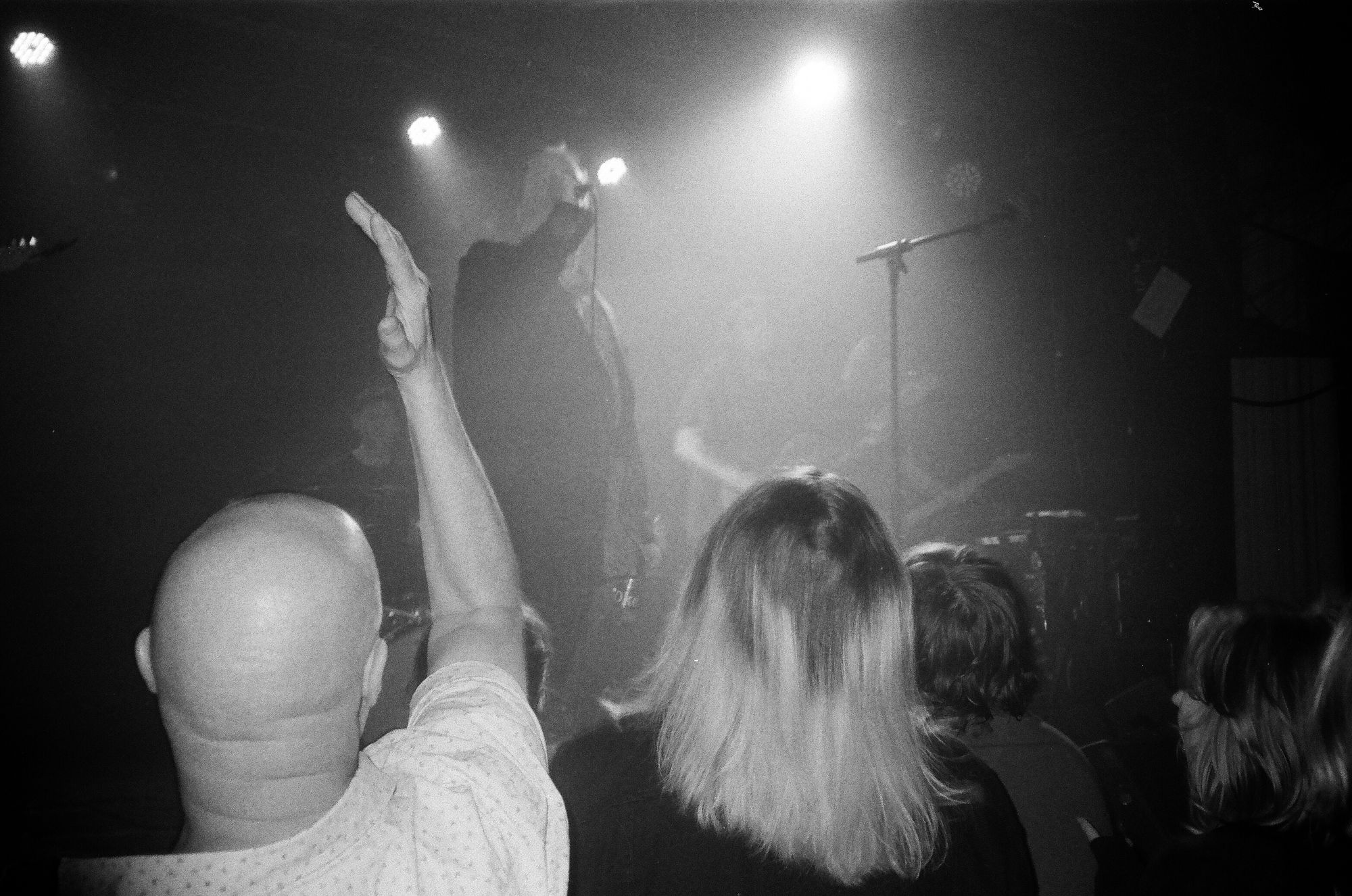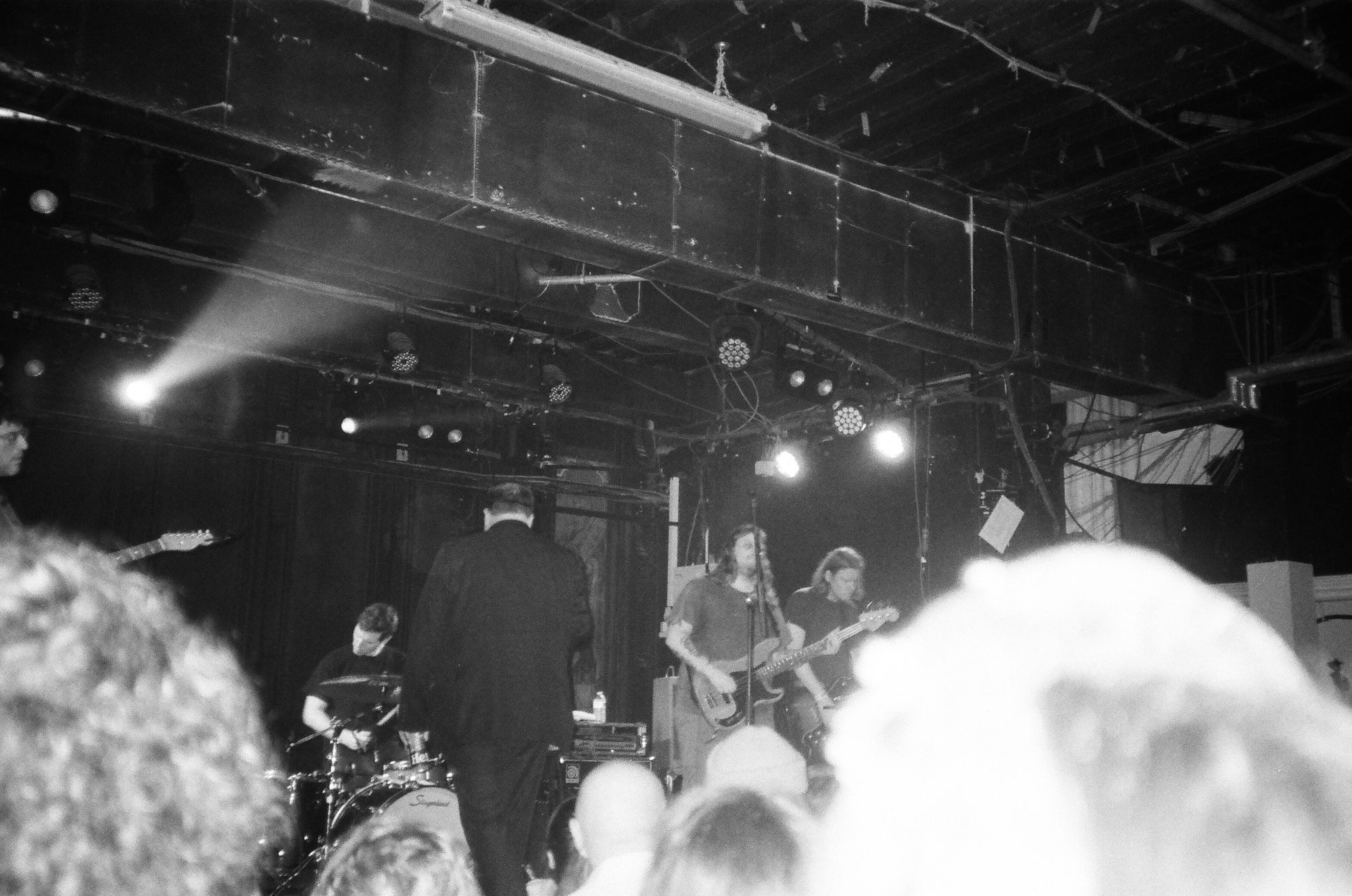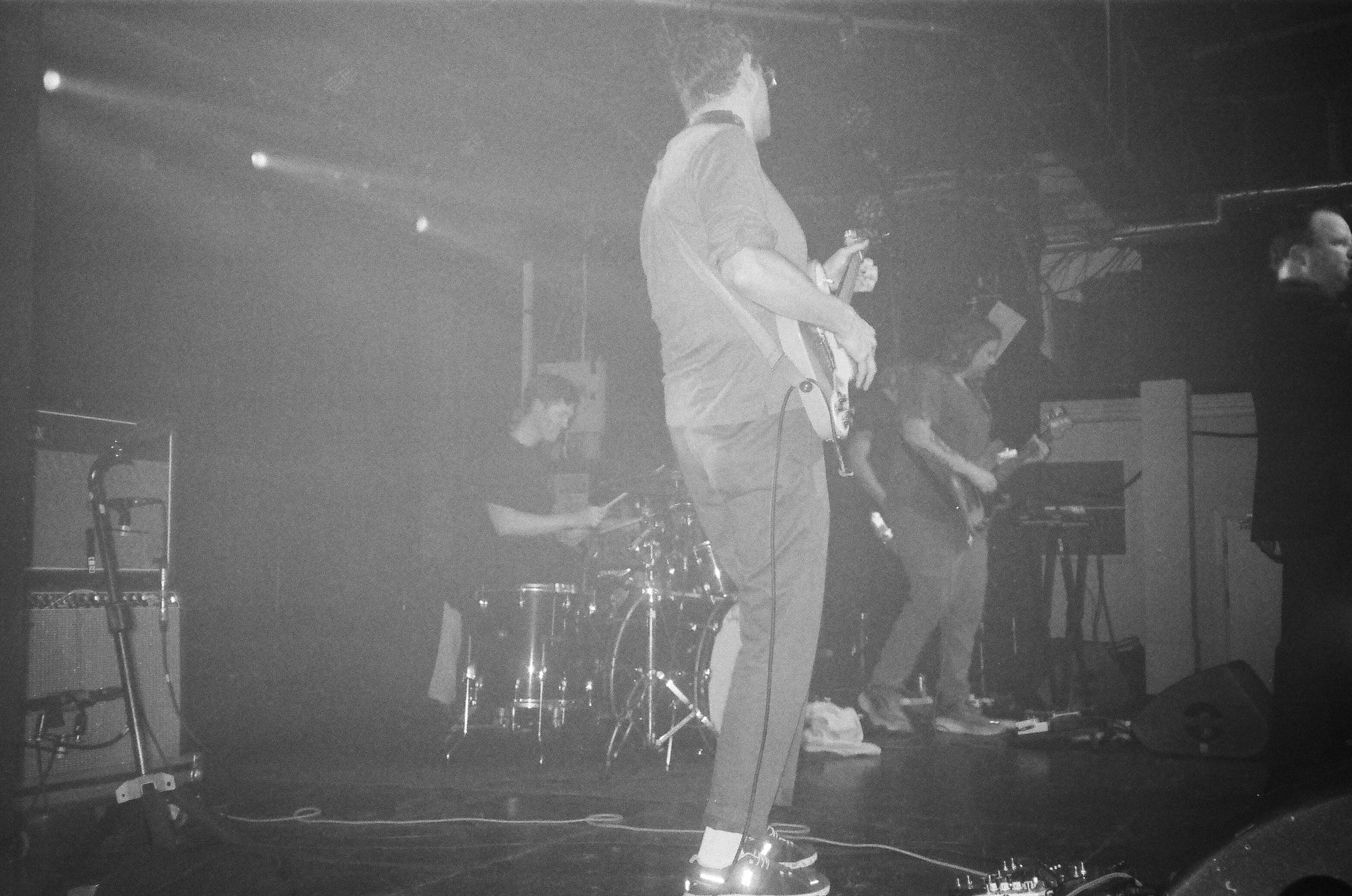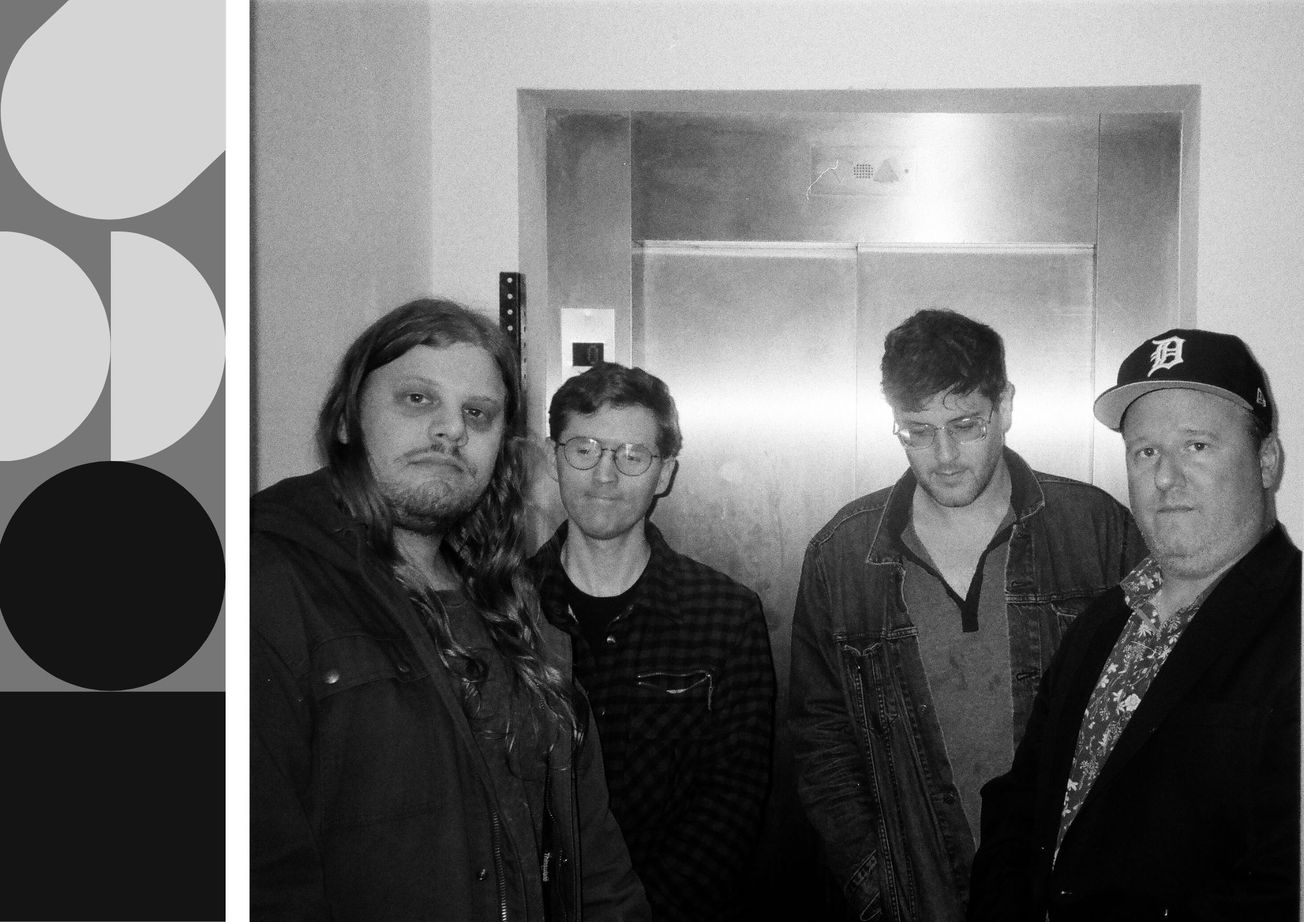By Benji Chapman, Co-Deputy Music Editor
The last time I spoke to Joe, he was handing me a bottle of Johnny Walker outside Concorde 2 in Brighton. Dressed in the same suit and shirt he’s also crowned with his Detroit Tigers baseball cap. The team are somewhat of a staple for the band now: appearing in their new album and also being the stadium location of it’s first listening party. We sit down to have a chat about the new album, baseball and other influences that lead to the formation of Protomartyr's latest project, Formal Growth In The Desert
Sat around a small coffee table I’m fiddling with my phone to record our chat as the reception's glass doors swing open and Joe returns from his post-soundcheck cigarette. Starting by asking about the new album, he makes it clear that this is a project that wears the influences of its own creation on its sleeves. “With the last record, I kind of stupidly said it was the end of an era. We’re gonna completely change up and start fresh with a new one and then Covid hit, and I kind of predicted my downfall.”
Covid was a huge tipping point for the group, Joe tells me, forcing the band to reinvent itself without choice. “I didn’t know if we were going to be a band again.” Alongside many artists, Protomartyr were forced to reconsider what going forward would look like as artists in a world where there was no live music, although this seems to have unlocked a degree of artistic freedom in its absurdity. This is reflected in the album's stories within a dystopian and gothic landscape, adjacent to the eponymous desert in its title, although it seems to foster a new life (or more accurately a growth) in the barren wasteland.

“When we started tentatively working on songs, I reminded Greg I kind of said, we’re closing the book on something musically. Don’t feel like you have to write a Protomartyr song necessarily.” Writing Growth seems to have been a liberating process for the band, who harnessed the paranoia surrounding Covid into something positive. "It's brighter sounding, I think," Joe tells me, "the album is mostly about dealing with grief and loss and kind of coming out of the Covid years, but also trying to ultimately see life goes on and be open to new experiences."
Processing the death of his mother and general chaotic disruptions that Casey had to deal with as an artist through the pandemic have been miraculously reflected into a picturesque thing of beauty. On Polacrilex Kid, a lead single and "thesis statement" for the album, Joe says "its gonna sound corny... But (its about) caring about yourself enough." We touch on some of the changes in his life that have prompted these thoughts. "That was a big question for me for years, but since I've gotten married..." He trails off. It is evident through the music that Joe has tackled some tragedies with an unrelenting and determinate positivity- and found some new appreciation for life in the process, presented alongside the album's cinematically gothic aesthetics.

Turning to the album art, I'm curious how it relates to these themes of the record, as Joe details. "I wanted a woman embracing a statue. I'd seen it in a book, an artwork from the 1920s, some painting." Passing this on to a friend, Trevor Naud, the album cover was created after a photoshoot with various different props. "He really took in a new direction. In the future I'll just give him a half baked idea and see what he does with it."
The album is also inextricably connected by its roots to the city of its inception, Detroit. Though it was recorded in the deserts of Texas, Casey has stated that "the desert is more of a metaphor or symbol of emotional deserts, or a place that seems to lack life." The vast, Texan rock formations that can be felt on the album are only as present as the emotions that Casey is describing all underpinned by the city which gave music legends from all walks of sound; J Dilla, Stevie Wonder and Juan Atkins to name a few. Back to the topic of baseball, I mention 3800 Tigers, a song referencing the city's own team. Conscious of both the time and torturing my interviewee too much, we gloss over the topic, following a questionable season.

I end our conversation by asking about some of Joe's favourite bands from Bristol- to which he responds, "are the Pop Group from here? We got the chance to play with them 5-6 years ago. Normally when you meet your musical heroes it goes terrible, but they were very nice. We played some of their songs and they played some of ours... Are there any bands I should check out in Bristol?" Suggesting Tara Clerkin trio, he says he'll check them out before we end with some advice to new bands looking to find their sound.
"Get a better job" he cackles, "it's not a money-maker." Smiling, but deadpan he more seriously details, "I think the big thing is to have influences. You can be pretty shitty when you start and that’s great because you’re trying to sound like somebody and it doesn’t work. Don’t be too insistent on trying to sound a certain way it’ll come naturally. Steal. It's good to steal." With a drummer who learnt his chops at the video-game arcade he worked at, Protomartyr couldn't come across more as a fearless passion project. Their new album has reinforced that the band is keen to continue redefining itself despite the greatest challanges. They are addictingly positive in their mysterious navigation and storytelling through a strange time of uncertainty in the modern age.
Featured Image: Bruno Bridger
Have you listened to Formal Growth In The Desert?








